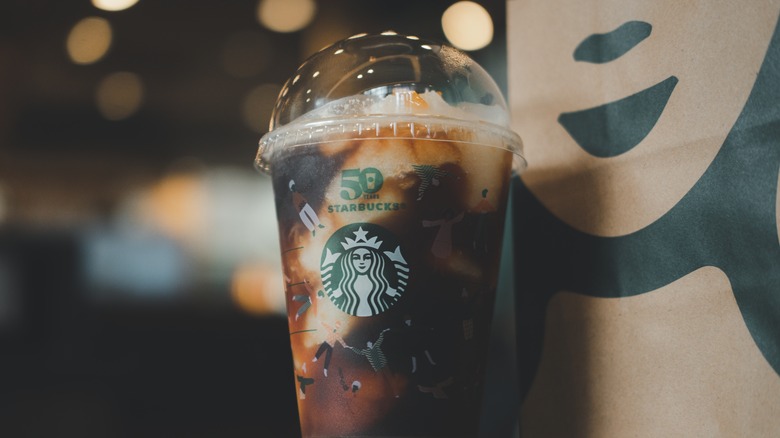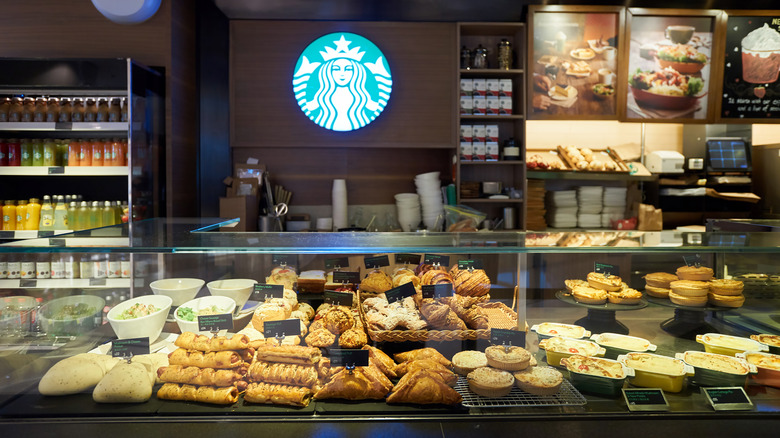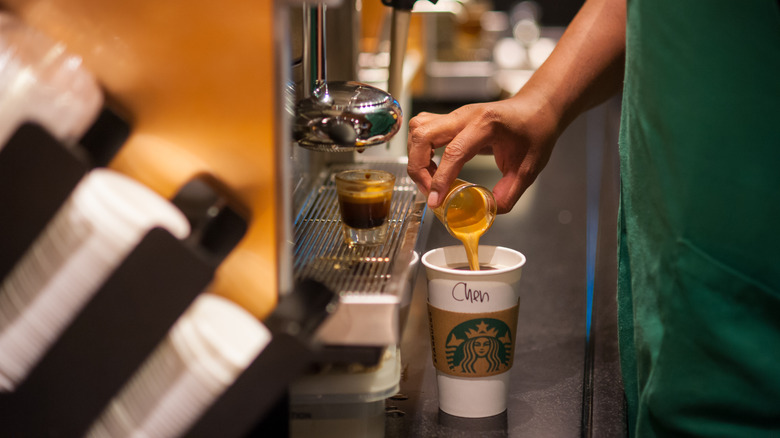What Starbucks' Founders Almost Named Their Iconic Coffee Chain
Starbucks is one of the most recognizable brand names in America. If someone says they're "getting Starbucks," you know that's synonymous with coffee and other café-style drinks, and your brain will conjure up the name at a quick glimpse of the coffee chain's iconic green mermaid logo.
Plenty of people have heard the tale that Starbucks' name was inspired by the classic novel "Moby Dick" by Herman Melville. Many are familiar with the white whale who gives the novel its name, and Captain Ahab, captain of the ship the Pequod, who becomes obsessed with conquering the beast. But a more minor character is Pequod's first mate, Starbuck, who served as the inspiration for the coffee chain's name.
However, Starbucks was not the first name tossed around for the Seattle-based company in its infancy. The three founders of the chain — Gerald Baldwin, Gordon Bowker, and Zev Siegl — proposed many possible options, and at one point considered naming it Cargo House.
Why Cargo House?
Yes, Cargo House sounds like the place your least-fashionable ex-boyfriend bought his ugly pants at, but this name came from a logical place. When the founders of Starbucks were brainstorming names for their new coffee shop, they had a particular concept in mind. Gerald Baldwin, Gordon Bowker, and Zev Siegl wanted to evoke the "seafaring tradition of the early coffee traders" (per the Starbucks website).
Cargo House, which implied a place for storing coffee beans freshly delivered from foreign lands, was one option. The name pays homage to Seattle's history as a port city. While today, Seattle is better known as a tech hub, it survived for much of its history on an economy built on trade and exports out of the Port of Seattle. Still one of the largest ports in the United States, Seattle's seaport continues to engage in high levels of international trade that keep the city flourishing. Despite the city's long history with cargo transport, Baldwin, Bowker, and Siegl went with a more literary route regarding seafaring, rather than a historical one.
From Cargo House to Starbucks
Luckily for coffee drinkers everywhere, the name Cargo House didn't stick, and Gordon Bowker has since admitted to the Seattle Times that it would have been an awful idea to name his empire that. Turning to literature, he suggested naming the chain "Pequod" after the ship in "Moby Dick." However, that name was also deemed too unappealing to work. ("A cup of Pequod" didn't really have the same ring to it, evidently.)
Bowker's business partner from another venture, Terry Heckler, suggested that brand names beginning with the sound "st" made a mark on customers. Not long after, the team discovered an old mining town called Starbo on a map of the Cascades and Mount Rainier in Washington State, which prompted Bowker to recall Starbuck, the first mate of the Pequod. Being both unique-sounding and accessible, the name seemed like a natural fit, even if it had nothing really to do with coffee. And thus, a flavored latte empire was born.



